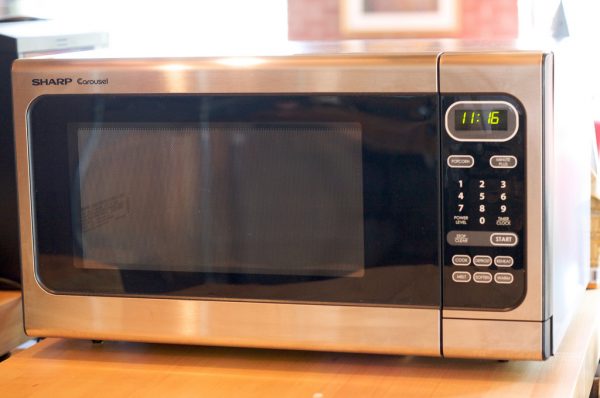Controversial scientist claims heating up your tea in the MICROWAVE will make it healthier
04/14/2017 / By Tracey Watson

Dr. Quan Vuong of the University of Newcastle in Australia, has made a controversial claim that has tea lovers the world over voicing their feelings on social media and elsewhere. Dr. Vuong, who investigates ways to improve the nutritional value of natural products, says that the healthiest (and tastiest) way to make your daily cuppa is to nuke it in the microwave. Let’s investigate his claims.
The scientist says that making tea in the microwave activates 80 percent of its polyphenol, theanine and caffeine compounds, dramatically increasing the health properties of both green and black tea.
Caffeine has been touted for its health benefits for centuries, and with good reason. It has been shown to improve memory, increase alertness, improve post-workout recovery, protect against Parkinson’s disease and Alzheimer’s, and much more.
Polyphenols are plant chemicals which provide several health benefits, including protecting against cancer, high blood pressure, diabetes and heart disease.
Theanine is an amino acid known for its ability to induce relaxation and decrease anxiety.
Dr. Vuong insists that four or more cups of tea a day made in the following way will provide all those benefits:
- Put a teabag in a cup of hot water.
- Heat in the microwave on 50 percent power for 30 seconds.
- Allow to stand for one minute before drinking.
Dr. Vuong has studied the effects of microwaving on several foods, including lemon pomace, and is now turning his attention to flora native to Australia, including eucalyptus oil. Next, he will be studying the benefits of the Kakadu plum, which he says contains more vitamin C than any other fruit.
On the surface, anything that would improve the nutritional output of a food or drink sounds great. Of course, there are many who would object to Dr. Vuong’s plan just because making tea with anything other than boiled water seems just plain gross. There is more at stake here than the merits of a new way of making a cup of tea, however. Any claim that nuking something in the microwave makes it healthier has to be taken with more than just a grain of salt.
A 2006 experiment for a high school science fair illustrates clearly that microwaving water is anything but a good idea. According to the experiment, when microwaved, cooled water was given to a plant, it withered and died in just a few days. By contrast, another plant, watered with water that had been boiled in the conventional manner on a stove, grew normally during the same period and under the same circumstances.
Microwaves are so dangerous, in fact, that after 20 years of intensive research they were banned in Russia from 1976 to 1987. (RELATED: Find out more about the dangers of microwaving food, here.)
Studies have found that microwaving food destroys up to 90 percent of its vitamins and plant-based nutrients (phytonutrients). Since phytonutrients are delicate and fragile, they are very easily destroyed. A great many of the nutrients in vegetables are destroyed by microwave energy.
To understand the dangers of microwaves, one needs to understand exactly how they work. Food is cooked or heated in the microwave when water molecules are “excited,” creating heat from the inside out. As noted by Mike Adams, the Health Ranger, “Microwaved food is not merely ‘dead’ food at every level, it is food that has been molecularly deconstructed, leaving nothing but empty calories, fiber and minerals. Virtually the entire vitamin and phytonutrient content has been destroyed. What’s really deceptive about microwave cooking is that the food still appears to be basically the same, but at the cellular level, it’s like a nuclear war has taken place.”
So, while making a cup of tea in the microwave might be quick and convenient, it probably isn’t the health panacea promised by Dr. Vuong.
Sources:
Submit a correction >>
Tagged Under:
This article may contain statements that reflect the opinion of the author
RECENT NEWS & ARTICLES
COPYRIGHT © 2017 SUPER FOODS NEWS





















